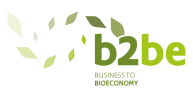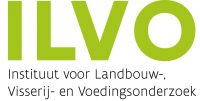What do we do?
We link parties around concrete innovative business cases
The B2BE facilitator wants to link producers of valuable biomass to companies that are looking for (components from) biomass for the production of innovative, biobased products. The B2BE facilitator does this around a concrete themes and concrete business cases, in a defined timeframe of 6 months. The B2BE facilitator's extensive network in the primary sector as well as other industries is a major asset.
Through well-supervised workshops, the B2BE then works to build the mutual trust of the potential business partners. Together they identify possible technical, logistic and legal obstacles for which B2BE then involves the right experts. Again the network of the B2BE facilitator is an asset. The B2BE facilitator will actively maintain and expand this network by following up on technological developments in Belgium and abroad.
Finally, the B2BE facilitator will evaluate whether the innovative idea - your joint business case - is also economically feasible.
And what next?
Afterwards, you can work with the VLAIO business advisors and the sector advisors of the Department of Agriculture and Fisheries to find the right financing instruments and support mechanisms to further develop your business case.
The B2BE facilitator works closely with them, which ensures smooth processing of your dossier. Do you already have a question about financing during the first phase? Then the B2BE facilitator will involve the business and/or sector advisors. And if other questions arise during the development of your business case that can be solved most quickly by the B2BE facilitator, your business advisor will also contact the B2BE facilitator.
Our goal is clear: to guide entrepreneurs from the primary sector and industry to start an innovation path in the bio-economy together.
Why?
Experience shows that bioeconomic innovations often get stuck at pilot scale. By guiding parties through the first, delicate steps towards market introduction, we want to accelerate the development of the bioeconomy in Flanders. This acceleration is an ambition that the Flemish government formally expressed in the Flemish Policy Plan on Bioeconomy LINK NEEDED. This plan is part of the broader Flemish recovery plan.
Flanders has some unique assets to realize a sustainable bio-economy:
- In the Flemish primary sector, many innovative farmers and growers are working with local partners to set up new technologies or value chains.
- In addition, in Flanders there are numerous companies active in the bioeconomy that are among the world's best.
- Flanders has a unique concentration of high-quality infrastructure to develop innovations on a semi-industrial or pilot scale.
- Finally, the Flemish research world is very strong in areas such as biotechnology, food, materials technology and chemistry. This long-standing specialization has led to a high level of business involvement and has also supported the development of local specialized clusters. The long-term strategies of the Flemish ports also support the development of bio-based industry.
Bio-economy is a crucial link in making the Flemish economy carbon-neutral, through the development of new bio-based alternatives for products based on fossil raw materials. With this impulse program we especially want to make our local economy resilient and stronger.
Who are we?
The work of the B2BE facilitator is carried out by ILVO within the framework of the Flemish Policy Plan on Bioeconomy. ILVO works closely together in the platform with the EWI and LV departments of the Flemish government, but also reaches out to all other research institutes, practice centers, legal and economic specialists, federations and interest groups.



